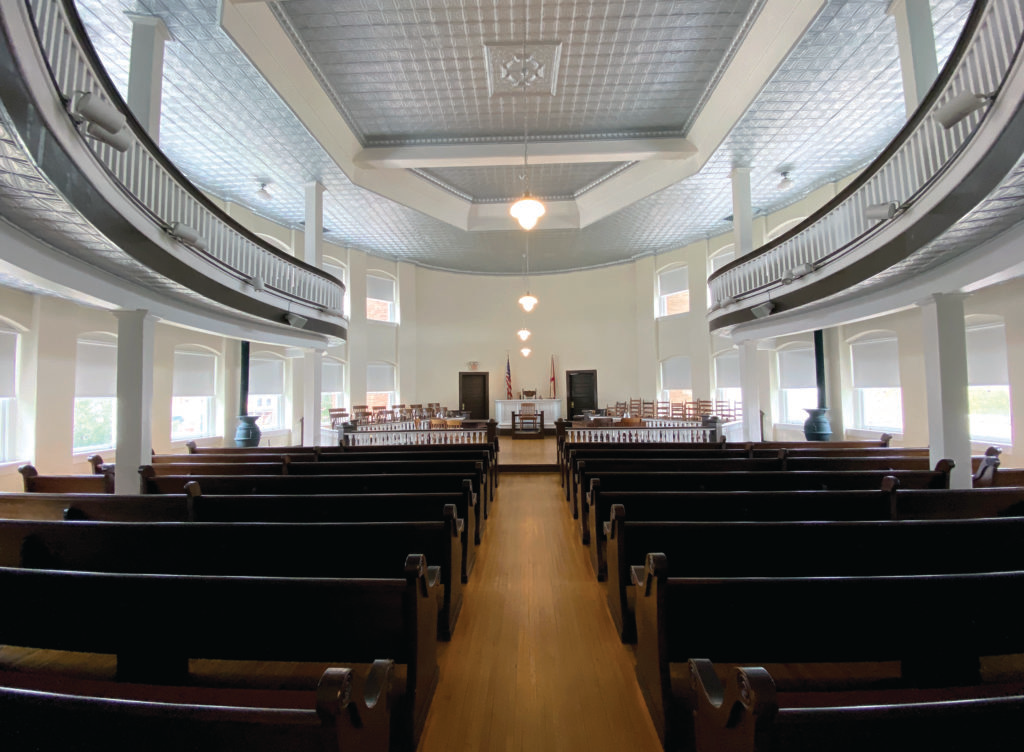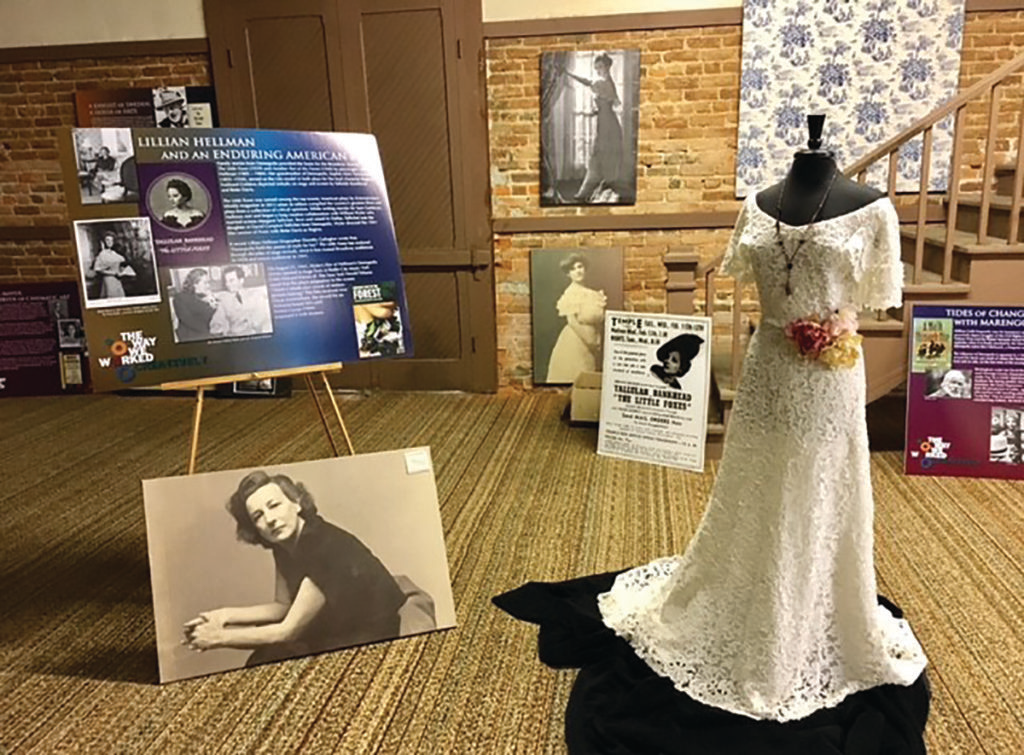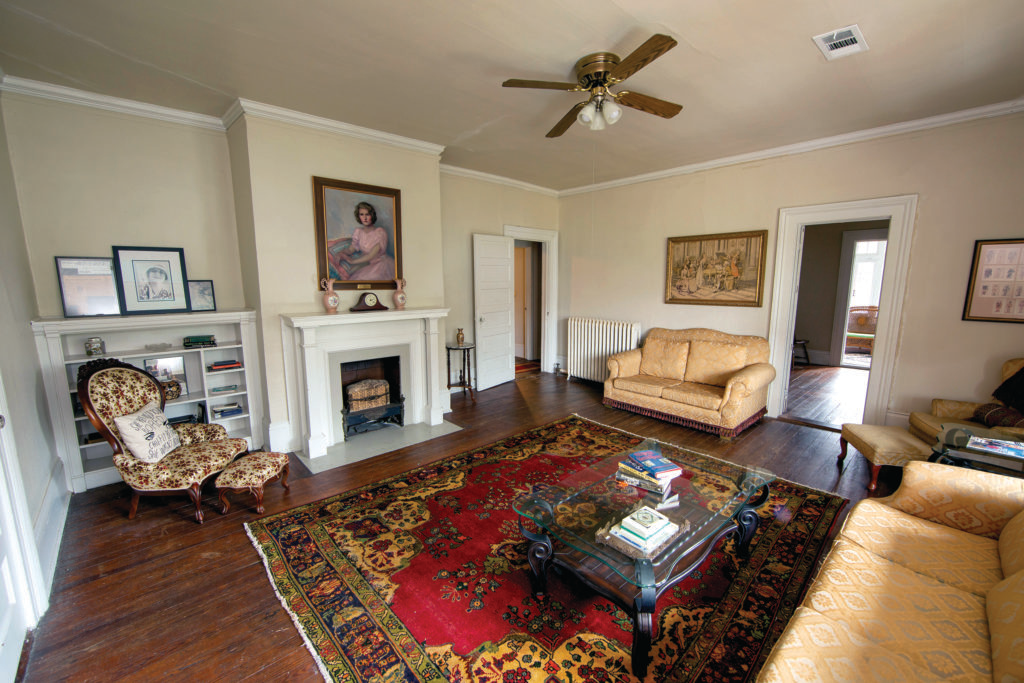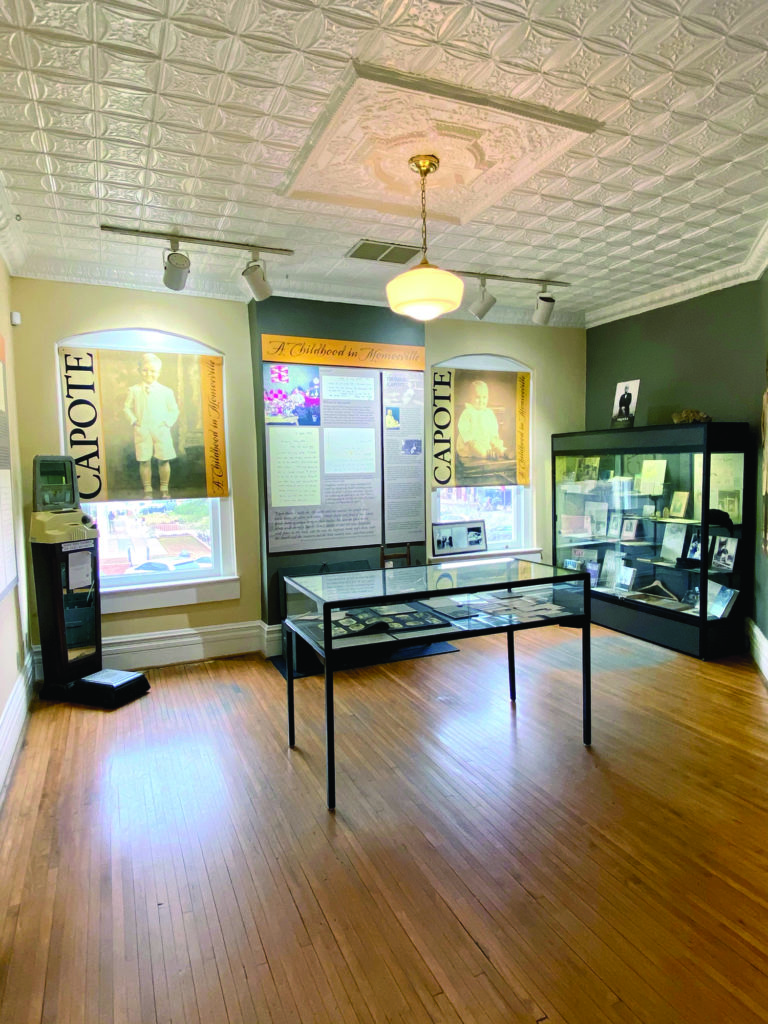By Pamela A. Keene

Stories of renowned authors with Alabama connections run deep; and in some cases, the legends are even deeper. But for people who want to learn more about writers like Truman Capote, Harper Lee or Lillian Hellman, a journey along the Southern Literary Trail through Alabama can help set the records straight.
The three-state trail comprises homes, museums, writing centers and cemeteries that highlight 28 Southern 20th century authors, from Margaret Mitchell and Erskine Caldwell to Zelda Fitzgerald and Truman Capote. The brainchild of Alabama attorney William Gantt and representatives of literary sites and communities in Alabama, Georgia and Mississippi, the trail was legally established with bylaws and a board of directors in April 2010.
“The goal was to honor and recognize how place influenced Southern writers and to preserve their histories,” says Gantt, who serves as chairman of the trail. “Each has an intriguing story to tell and we hope that we’re able to give people further insight about them beyond the contents of the books they’ve written.”
Beginnings
In 2004, two events took place in Alabama and Mississippi that provided the catalyst for the development of the trail.
“Organizers in Demopolis had been celebrating Lillian Hellman and in Columbus, Miss., the town hosted Tennessee Williams festivals, so the two groups met that year discuss their respective programs,” Gantt says. “From that meeting, they agreed to contact other communities in the Southeast that celebrated their own authors.”
Meetings were held to develop criteria for inclusion of sites and by 2008 they had created a route that traversed the three states. The next year, the first “Trailfest” included performances, tours, readings, film screenings and school programs.

“The Southern Literary Trail made its debut at the 2009 Trailfest and generated a great deal of attention in all three states and regionally,” Gantt says. “With funding help from each state’s humanities councils and the National Endowment for the Humanities, we had a successful launch and saw our ideas come to life.”
Late in 2020, the board finalized an agreement with Mississippi State University in Starkville to provide a permanent home for the trail. Administrative support includes the services of two library staff members and website maintenance.
“Having a physical location and staff support has really made a difference in our work,” Gantt says. “With a centralized website and staff assistance, we are much more able to focus on our collective goals of bringing these Southern authors the recognition they are due. I am so glad we landed there.”
The trail also sponsors and/or curates various traveling exhibitions, including a recent exhibition of photography by P.H. Polk and a collection of typewriters used by famous authors.
Honoring Alabama authors
The sites that represent the authors are as diverse as the books they wrote. In some cases, their childhood homes still stand; in others, a visit reveals a peaceful gravesite and an historic marker.
“Each town has represented its famous authors in their own way,” Gantt says. “For instance, in Monroeville, the homes of Capote and Lee have been torn down. The Monroeville Museum holds a collection of memorabilia, some manuscripts, newspaper clippings and photographs.”
The town also honors Lee with regular productions of To Kill a Mockingbird, staged in the Old Monroe County Courthouse.
“As a youngster, Lee, known by her first name Nelle in those days, would go to the courthouse to see her daddy,” says Wanda Green, executive director of the Monroeville Museum. The courthouse was used as inspiration for the set for the film starring Gregory Peck as Atticus Finch. “When people come here, they say it’s like the story has come to life.”
In Montgomery, Scott and Zelda rented a home for about a year during their turbulent marriage; at the time they were both writing prolifically—his Tender is the Night and her Save Me the Waltz.

“Zelda was from Montgomery, but during her lifetime she traveled extensively with her husband, and they never owned a home,” says Alaina Doton, executive director of the Fitzgerald House Museum. “When she and Scott came back to Montgomery, they rented the home that’s now a museum, with suites that can be rented through Airbnb.”
The downstairs of the Fitzgerald House contains the museum with Zelda’s paintings and personal items. Guests can stay in the upstairs apartments, named the Zelda Suite and the Scott Suite, which are separate from the museum.
Other authors with Mobile ties include William March, Eugene Walter and Albert Lee Murray. March’s second novel, Come in at the Door, portrays life in small-town Alabama. Walter’s The Untidy Pilgrim was set in Mobile, where he grew up. Murray’s character Scooter in The Train Whistle Guitar, was based on his childhood. Murray met author Ralph Ellison when both attended what was then known as Tuskegee Institute. The two were friends until Ellison’s death in 1994.

Although Lillian Hellman didn’t live in Demopolis, she frequently visited family there. “Her great-grandfather was the first Jewish immigrant to Demopolis and became a successful businessman,” Gantt says. “I grew up there and recall stories from people of my parents’ generation who remembered her. In 2007, I was asked to chair the town’s Lillian Hellman Festival; it was an honor.”
Many of the town’s buildings, some built by her family, became part of her plays, and the Marengo County Historical Society supports the preservation of such places as Lyon Hall and the Marx Bank Building.
“The Southern Literary Trail has helped bring these Southern authors to life and provide a glimpse into what influenced their writings,” Gantt says. “Whether you decide to visit a site close to home or take a journey through the entire trail, you’re sure to find an interesting story and a surprising way to connect with these storytellers.”
Authors on the Alabama portion of the Southern Literary Trail
- Truman Capote, In Cold Blood, Monroe County Museum, monroecountymuseum.org, Monroeville.
- Ralph Ellison, Invisible Man, tuskegee.edu/libraries/legacy-museum, Tuskegee
- Zelda Fitzgerald, Save Me the Waltz, F. Scott Fitzgerald, Tender is The Night, The Fitzgerald House, thefitzgeraldmuseum.org, Montgomery
- Lillian Hellman, The Little Foxes, Another Part of the Forest, marengocountyhistoricalsociety.com, Demopolis
- William Bradford Huie, Three Lives for Mississippi, Mud on the Stars, facebook.com/pages/Hartselle-library, Hartselle
- Harper Lee, To Kill A Mockingbird, Monroe County Museum, Monroeville, monroecountymuseum.org, Monroeville
- William March, Come in at the Door, Mobile Public Library, mobilepubliclibrary.org, Mobile
- Albert Murray, Stomping the Blues, mobilepubliclibrary.org, Mobile, and tuskegee.edu/libraries/legacy-museum, Tuskegee
- Eugene Walter, The Untidy Pilgrim, The Byzantine Riddle, mobilepubliclibrary.org, Mobile
For general information about the Southern Literary Trail: southernliterarytrail.org; and for the latest information about events and activities: facebook.com/southernliterarytrail. For further details and background: encyclopediaofalabama.org/southernliterarytrail.




